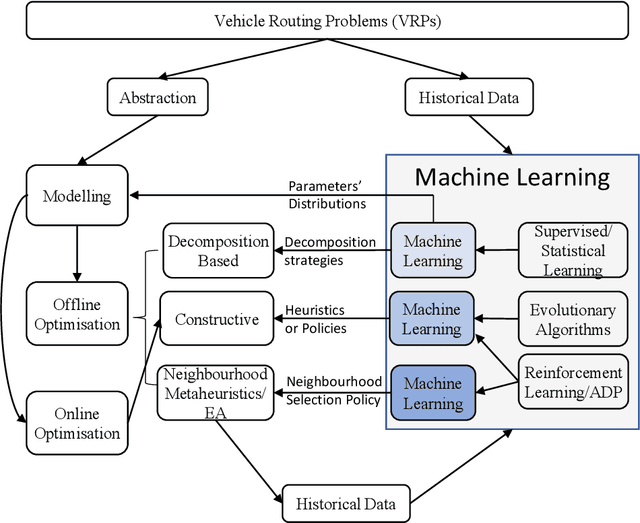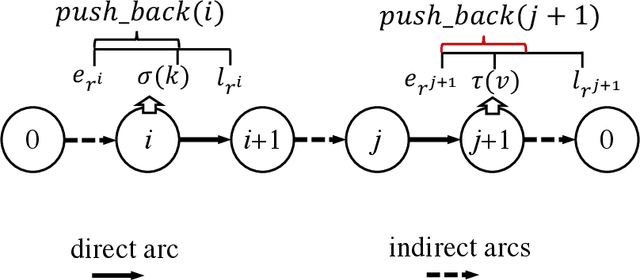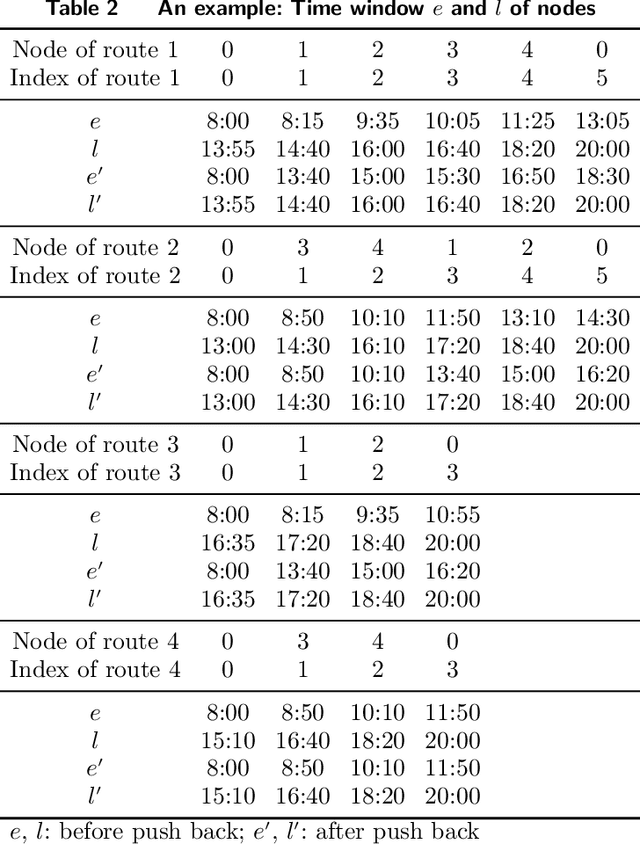Ning Xue
Analytics and Machine Learning in Vehicle Routing Research
Feb 19, 2021
Abstract:The Vehicle Routing Problem (VRP) is one of the most intensively studied combinatorial optimisation problems for which numerous models and algorithms have been proposed. To tackle the complexities, uncertainties and dynamics involved in real-world VRP applications, Machine Learning (ML) methods have been used in combination with analytical approaches to enhance problem formulations and algorithmic performance across different problem solving scenarios. However, the relevant papers are scattered in several traditional research fields with very different, sometimes confusing, terminologies. This paper presents a first, comprehensive review of hybrid methods that combine analytical techniques with ML tools in addressing VRP problems. Specifically, we review the emerging research streams on ML-assisted VRP modelling and ML-assisted VRP optimisation. We conclude that ML can be beneficial in enhancing VRP modelling, and improving the performance of algorithms for both online and offline VRP optimisations. Finally, challenges and future opportunities of VRP research are discussed.
A Hybrid Pricing and Cutting Approach for the Multi-Shift Full Truckload Vehicle Routing Problem
Dec 03, 2020



Abstract:Full truckload transportation (FTL) in the form of freight containers represents one of the most important transportation modes in international trade. Due to large volume and scale, in FTL, delivery time is often less critical but cost and service quality are crucial. Therefore, efficiently solving large scale multiple shift FTL problems is becoming more and more important and requires further research. In one of our earlier studies, a set covering model and a three-stage solution method were developed for a multi-shift FTL problem. This paper extends the previous work and presents a significantly more efficient approach by hybridising pricing and cutting strategies with metaheuristics (a variable neighbourhood search and a genetic algorithm). The metaheuristics were adopted to find promising columns (vehicle routes) guided by pricing and cuts are dynamically generated to eliminate infeasible flow assignments caused by incompatible commodities. Computational experiments on real-life and artificial benchmark FTL problems showed superior performance both in terms of computational time and solution quality, when compared with previous MIP based three-stage methods and two existing metaheuristics. The proposed cutting and heuristic pricing approach can efficiently solve large scale real-life FTL problems.
 Add to Chrome
Add to Chrome Add to Firefox
Add to Firefox Add to Edge
Add to Edge